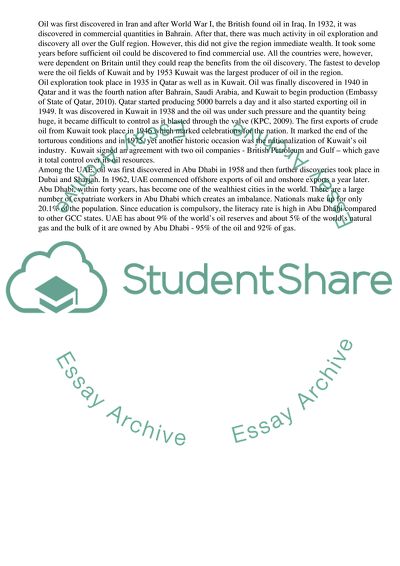Cite this document
(“Advantages of GCC States after the Discovery of Oil Fields Coursework”, n.d.)
Advantages of GCC States after the Discovery of Oil Fields Coursework. Retrieved from https://studentshare.org/business/1738780-challenges-of-oil-wealth-in-gulf-states-qatar-kuwait-uae-saudia-arabia
Advantages of GCC States after the Discovery of Oil Fields Coursework. Retrieved from https://studentshare.org/business/1738780-challenges-of-oil-wealth-in-gulf-states-qatar-kuwait-uae-saudia-arabia
(Advantages of GCC States After the Discovery of Oil Fields Coursework)
Advantages of GCC States After the Discovery of Oil Fields Coursework. https://studentshare.org/business/1738780-challenges-of-oil-wealth-in-gulf-states-qatar-kuwait-uae-saudia-arabia.
Advantages of GCC States After the Discovery of Oil Fields Coursework. https://studentshare.org/business/1738780-challenges-of-oil-wealth-in-gulf-states-qatar-kuwait-uae-saudia-arabia.
“Advantages of GCC States After the Discovery of Oil Fields Coursework”, n.d. https://studentshare.org/business/1738780-challenges-of-oil-wealth-in-gulf-states-qatar-kuwait-uae-saudia-arabia.


